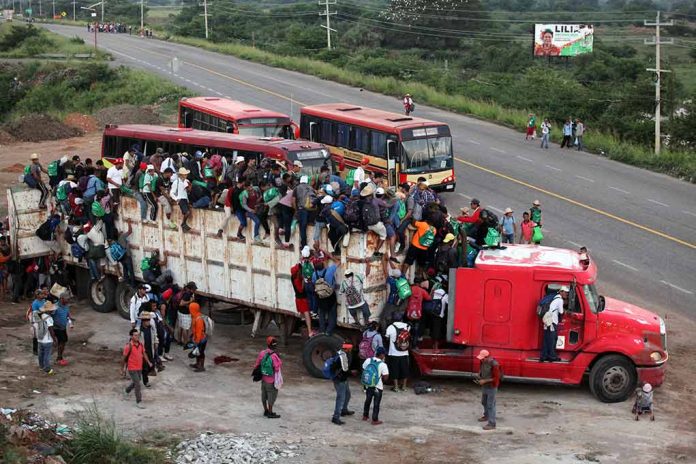
An Indian migrant reveals a human smuggling operation across the U.S.-Canada border, shedding light on a grim tragedy.
At a Glance
- Harshkumar Ramanlal Patel and Steve Shand are on trial for smuggling migrants, resulting in fatalities.
- The Patel family tragically froze to death while attempting to cross the border in extreme cold.
- Migrant Rajinder Singh testifies against the smuggling network.
- Singh received over $400,000 for his involvement in the illegal crossings.
Revealing a Smuggling Network
Rajinder Singh’s testimony exposes a human smuggling network responsible for illegally transporting Indian migrants across the U.S.-Canada border. With this network, Singh facilitated the crossing of over 500 migrants, earning more than $400,000. This testimony is central to the prosecution of Harshkumar Ramanlal Patel and Steve Shand, who were allegedly involved in the tragic attempt to smuggle an Indian family across the border.
The network relied heavily on exploiting legal pathways like student visas. Once in Canada, migrants faced the dangers of illegal crossings into the United States. Tragically, this route claimed the lives of the Patel family, who succumbed to the extreme cold while attempting to cross the border.
2 convicted in human smuggling case after Indian family froze to death on US-Canada border https://t.co/LNMIizQTQ5
— WLOX (@WLOX) November 23, 2024
The Cost of a Dangerous Journey
Migrants paid substantial fees, approximately $100,000, to be smuggled from India to the U.S. These fees were managed through an informal system known as “hawala,” which bypasses the formal banking channels. The financial burdens on these individuals often led them to work for low wages in places like Chicago to repay their debts to the smugglers.
During the trial, Singh voiced his criticism of the smuggling operation, stating, “They are playing with people’s lives. People died.” These words underscore the grim reality faced by those who sought a better life only to find tragedy.
Two men have been convicted of charges related to human smuggling for their roles in an international operation that led to the deaths of a family of Indian migrants who froze while trying to cross the Canada-U.S. border. https://t.co/VBuuEHmx8F
— NBC News (@NBCNews) November 23, 2024
Legal Implications and Deferred Deportation
Singh’s cooperation with authorities has postponed his deportation. This strategic legal deal allows him to stay in the U.S. temporarily. Singh’s testimony provided vital information about the smuggling network’s operations, including the shift in crossing points from British Columbia to Minnesota.
Prosecutors are leveraging evidence from the case to demonstrate the defendants’ roles. Meanwhile, Shand’s attorney argues for his client’s unintentional involvement, pointing to a lack of awareness regarding the operation’s fatal risks.





